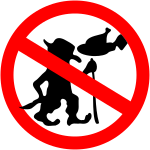Trolling for Suckers, Part VII
Usage
The term troll is highly subjective. Some readers may characterize a post as trolling, while others may regard the same post as a legitimate contribution to the discussion, even if controversial. The term is often used to discredit an opposing position, or its proponent, by argument fallacy ad hominem.
Often, calling someone a troll makes assumptions about a writer's motives. Regardless of the circumstances, controversial posts may attract a particularly strong response from those unfamiliar with the robust dialogue found in some online, rather than physical, communities.
Experienced participants in online forums know that the most effective way to discourage a troll is usually to ignore him or her, because responding encourages a true troll to continue disruptive posts — hence the often-seen warning "Please do not feed the troll".
The word troll is often and easily (mis)used as an ad hominem attack against someone whose viewpoints and input cannot otherwise be silenced (i.e., via banning). Its successful use and misuse reveals much about how starkly different the world of technicians is compared to normal social and political discourse.
The term troll should be used with attention since it is a very easy way of undermining an opposing point of view. Sometimes, overly using the word "troll" may constitute trolling in itself.
Established forum users might all agree on one side of a message as being the universal truth; in which case a "troll" might just be some outsider adding an opposing message.







No comments:
Post a Comment